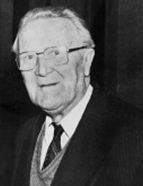

Léon Bourdon graduated from the École Normale Supérieure de Paris [Normal Superior School of Paris], which he entered in 1920. He successfully passed the history and geography agrégation exams in 1923. Rather than teaching immediately in France, he chose to gain experience abroad, spending thirteen years in Italy, Spain, and Portugal. This period unfolded in the post-World War I context, during which France, despite its political and economic challenges, invested in ambitious cultural dissemination policies abroad. From 1923 to 1925, Bourdon studied at the École Française de Rome [French School of Rome], where his interests focused primarily on archaeology and art history. In 1926, he joined the newly established Casa Velázquez de Madrid [Velázquez House in Madrid]. Under the guidance of its director, archaeologist and historian Pierre Paris (1859–1931), Bourdon connected with other young scholars and future prominent Hispanists, including Paul Guinard (1895–1976) and Robert Ricard (1900–1984). In 1927, he moved to Portugal to become a lecturer in Geography at the Universidade de Coimbra [University of Coimbra]. However, he left this role in 1928 to take up the position of director of the Instituto Francês [French Institute] in Lisbon, newly established that year under the auspices of the French Ministry of Foreign Affairs. Bourdon held this position until 1935, when he decided to return to France. As director of the Instituto , he also edited the Bulletin of the Boletim do Instituto Francês de Portugal [Bulletin of the French Institute of Portugal], contributing to various publications. In addition to overseeing the biannual Boletim (written in French), Bourdon worked to raise the Institute’s profile by organising conferences featuring prominent intellectuals, including writers Georges Duhamel (1884–1966), Jules Romains (1885–1972), Jacques Maritain (1883–1973), and physiologist René Leriche (1879–1955). On the other hand, Bourdon also established, whenever necessary, close ties between French authorities and Portuguese Francophile circles. At the time, prominent figures in these circles included university professors Hernâni Cidade (1887–1975), Fidelino de Figueiredo (1889–1967), José de Figueiredo (1872–1937), and Moisés Amzalak (1892–1975).
This work is financed by national funds through FCT - Foundation for Science and Technology, I.P, in the scope of the projects UIDB/04311/2020 and UIDP/04311/2020.
